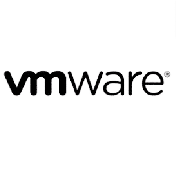Seminarinhalt
You will learn about the process of planning and designing both relational and nonrelational databases. You will learn the design considerations for hosting databases on Amazon Elastic Compute Cloud (Amazon EC2). You will learn about our relational database services including Amazon Relational Database Service (Amazon RDS), Amazon Aurora, and Amazon Redshift. You will also learn about our nonrelational database services including Amazon DocumentDB, Amazon DynamoDB, Amazon ElastiCache, Amazon Neptune, and Amazon QLDB. By the end of this course, you will be familiar with the planning and design requirements of all 8 of these AWS databases services, their pros and cons, and how to know which AWS databases service is right for your workloads.
In this course, you will:
In this course, you will:
- Apply database concepts, database management, and data modeling techniques
- Evaluate hosting databases on Amazon EC2 instances
- Evaluate relational database services (Amazon RDS, Amazon Aurora, and Amazon Redshift) and their features
- Evaluate nonrelational database services (Amazon DocumentDB, Amazon DynamoDB, Amazon ElastiCache, Amazon Neptune, and Amazon QLDB) and their features
- Examine how the design criteria apply to each service
- Apply management principles based on the unique features of each service
Programm
Day One
Module 0: Planning and Designing Databases on AWS
Module 1: Database concepts and general guidelines
Module 2: Database Planning and Design
Module 3: Databases on Amazon EC2
Module 4: Purpose-Built Databases
Module 5: Databases on Amazon RDS
Module 6: Databases in Amazon Aurora
Day Two
Module 6: Databases in Amazon Aurora (continued)
Module 7: Databases in Amazon Document DB (with MongoDB compatibility)
Module 8: Amazon DynamoDB Tables
Day Three
Module 9: Databases in Amazon Neptune
Module 10: Databases in Amazon Quantum Ledger Database (Amazon QLDB)
Module 11: Databases in Amazon ElastiCache
Module 12: Data warehousing in Amazon Redshift
Module 13: Course Review
Module 0: Planning and Designing Databases on AWS
Module 1: Database concepts and general guidelines
- Databases in the cloud
- Database design principles
- Transactional compliance
Module 2: Database Planning and Design
- Workload requirements
- Design considerations
Module 3: Databases on Amazon EC2
- Amazon EC2 for hosting databases
Module 4: Purpose-Built Databases
- The journey to AWS
- Data modeling basics
Module 5: Databases on Amazon RDS
- Amazon RDS databases
- Amazon RDS distinguishing features
- Amazon RDS Design considerations
- Lab 1: Working with Amazon RDS databases
Module 6: Databases in Amazon Aurora
- Amazon Aurora databases
- Aurora distinguishing features
- Aurora design considerations
Day Two
Module 6: Databases in Amazon Aurora (continued)
- Lab 2: Working with Amazon Aurora databases
Module 7: Databases in Amazon Document DB (with MongoDB compatibility)
- Amazon DocumentDB
- Amazon DocumentDB design considerations
- Lab 3: Working with Amazon DocumentDB databases
Module 8: Amazon DynamoDB Tables
- Amazon DynamoDB
- DynamoDB data modeling
- DynamoDB distinguishing features
- DynamoDB design considerations
- Lab 4: Working with Amazon DynamoDB Tables
Day Three
Module 9: Databases in Amazon Neptune
- Amazon Neptune
- Neptune designt considerations
Module 10: Databases in Amazon Quantum Ledger Database (Amazon QLDB)
- Amazon Quantum Ledger Database (Amazon QLDB)
- Amazon QLDB Design Considerations
Module 11: Databases in Amazon ElastiCache
- Amazon ElastiCache
- ElastiCache for Memcached
- ElastiCache for Redis
Module 12: Data warehousing in Amazon Redshift
- Amazon Redshift
- Amazon Redshift distinguishing features
- Amazon Redshift data modeling
- Amazon Redshift design considerations
- Lab 5: Working with Amazon Redshift Clusters
Module 13: Course Review
Zielgruppen
- Data Engineers who are new to designing cloud databases or nonrelational databases
- Solutions Architects who are designing services or architectures that are integrated with databases
- Developers that are building cloud database-enabled applications
Vorkenntnisse
- Familiarity with AWS Database Services, equivalent to AWS Database Offerings digital training
- Understanding of database design concepts and/or data modeling for relational or nonrelational databases
- Familiarity with cloud computing concepts
- Familiarity with general networking and encryption concepts
- Understanding of the three V’s of data (volume, velocity, and variety)


